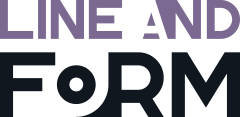

The success of any web design is not just down to the skill of a creative and innovative designer, although it certainly helps. A successful project is created by good communication between client and designer. Here are my top-tips to keep everything running smoothly.
Do some research and preparation
Client: Provide as much information as you can from the very start. Often designers will give you a questionnaire to fill out. Put some time aside and fill it out as fully as you can.
- Don’t be afraid to ask questions, if you don’t understand something.
- If you have images, brand guidelines and examples of what you want, forward them to your designer as soon as you can.
- The more information that you can offer the more time will be saved later in misunderstandings and extra cost.
Designer: Find out as much as you can before your first meeting.
- Research the market, find the market leaders.
- Don’t bombard the client with too much all at once.
- Highly technical questions can be intimidating.
- Much can be gained by a face to face meeting.
- Take the time to explain your approach and give your client time to think and make decisions.
Every project is a collaboration
Client: It is your website that is being created, take ownership of it and be sure it will fit in with your current business aims and targets. Respect the knowledge of your designer, after all it is that knowledge that you are paying for. Don’t be afraid to question if you are not clear on any recommendations or design direction.
Designer: It is important that you listen to what you client wants. Ask questions and listen. Resist rushing into offering solutions until you have explored what your client wants to get out of their website. Respect the knowledge your client has about their own business and their clients and customers.
Ask questions
Designer and client: This can’t be emphasised enough. Both sides should not be afraid to ask questions. Client and Designer are experts in their own field and the knowledge of both sides is a valuable resource. No question is stupid. Not asking may cause problems later on in the project.
Be clear about timescales
Designer and client: Have clear deadlines and timescales so both of you understand what is needed and when it is needed. Deadlines will stop the project dragging on for months with no progress. If possible split tasks into manageable chunks that can be approved or adjusted at each stage.
Give constructive feedback
Client: Your designer will be waiting on tenterhooks to hear if they have hit the right note. Try to give feedback as quickly as possible.
- Don’t be afraid to explain why something does not fit your initial expectations.
- Listen to professional advice, this is what you are paying for.
- Respect the time that goes into changes and new designs.
- If you are happy with a design please let your designer know.
- A happy designer is a creative designer.
Designer: Don’t be precious about your designs but strive for high quality and pride in your work.
- Take the time to explain your concept.
- Be open to suggestions and questions.
- Give professional advice and suggestion, this is what you are paid for.
- Remember this is your client’s reputation and business.
- Find out why a change needs to be made.
- Exploring the issues may allow you to find an even better solution.
- A successful project is a happy client.
Enjoy the process
Client and Designer: Designing a website is an important step for any business but it is also an exciting project. If you enjoy the process you will get a more vibrant and effective result. Go into it with enthusiasm and open yourself to new ideas and innovative approaches.


